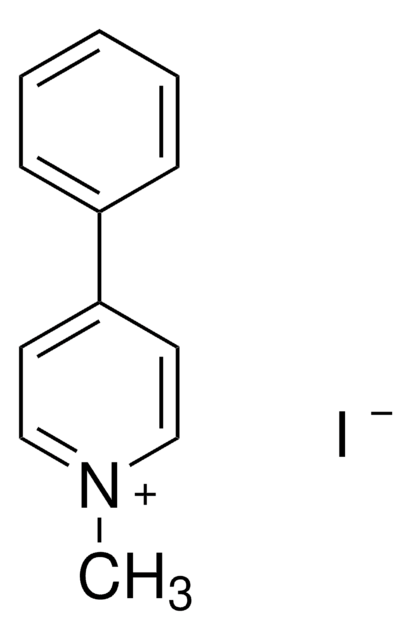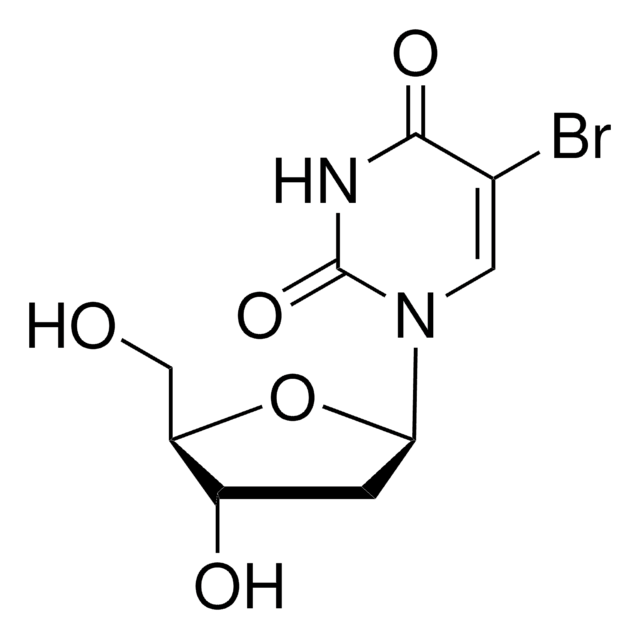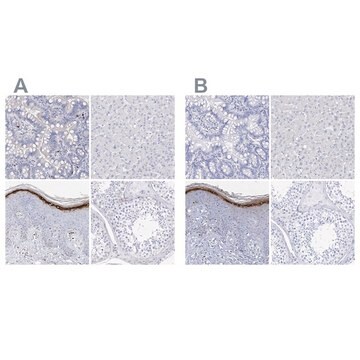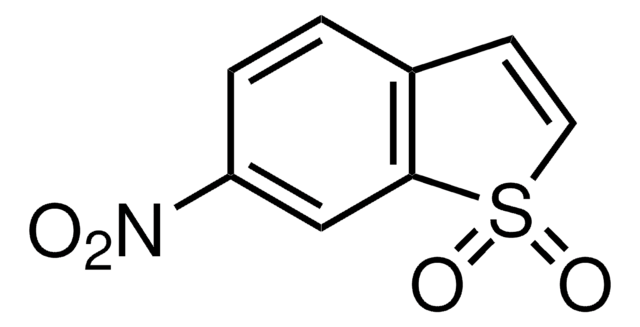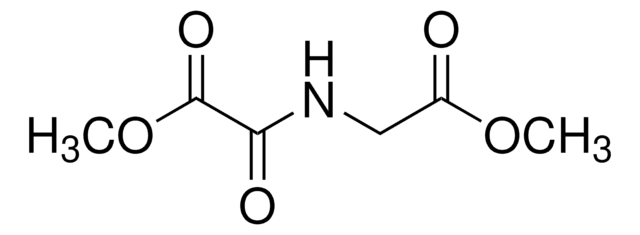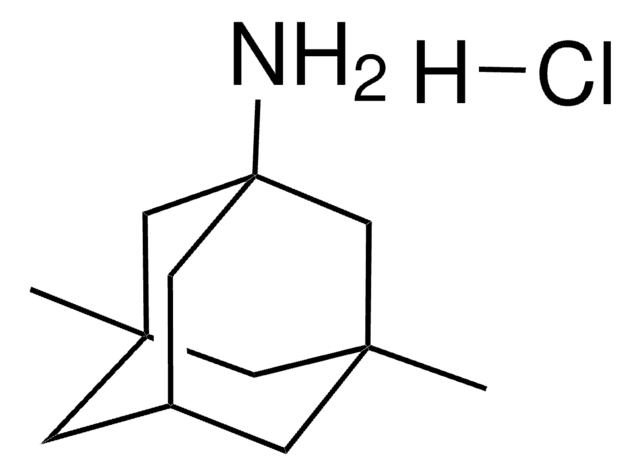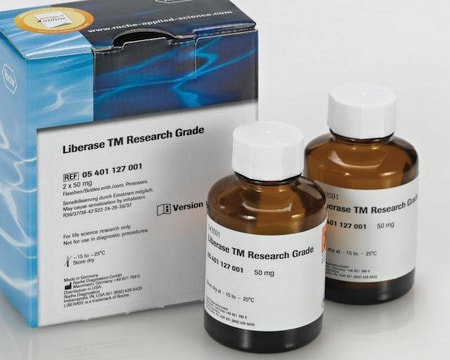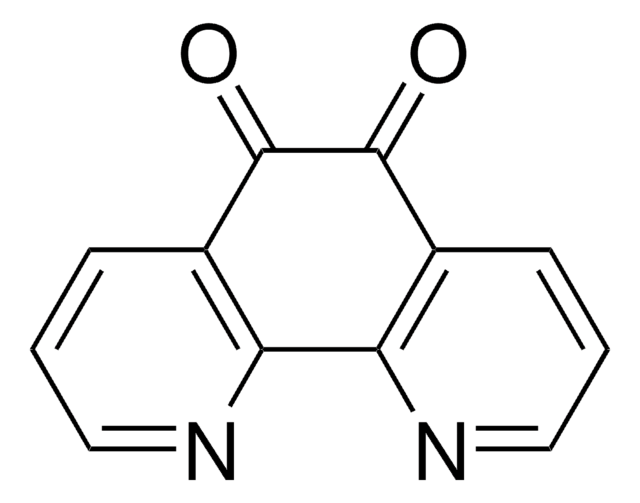D5314
DPQ
≥98% (HPLC), solid
Sinónimos:
3,4-Dihydro-5-[4-(1-piperidinyl)butoxyl]-1(2H)-isoquinolinone
Iniciar sesiónpara Ver la Fijación de precios por contrato y de la organización
About This Item
Fórmula empírica (notación de Hill):
C18H26N2O2
Número de CAS:
Peso molecular:
302.41
MDL number:
UNSPSC Code:
12352200
NACRES:
NA.77
Productos recomendados
biological source
synthetic (organic)
Quality Level
assay
≥98% (HPLC)
form
solid
mp
107-109 °C
solubility
DMSO: 1 mg/mL, clear, colorless to faintly yellow
storage temp.
2-8°C
InChI
1S/C18H26N2O2/c21-18-16-7-6-8-17(15(16)9-10-19-18)22-14-5-4-13-20-11-2-1-3-12-20/h6-8H,1-5,9-14H2,(H,19,21)
InChI key
RVOUDNBEIXGHJY-UHFFFAOYSA-N
Application
DPQ has been used as a PARP1 (poly(ADP-ribose) polymerase 1) inhibitor in in vivo studies to determine the loss of γ-H2AX (H2A histone family member X) upon irradiation.
Biochem/physiol Actions
3,4-Dihydro-5-[4-(1-piperidinyl)butoxyl]-1(2H)-isoquinolinone (DPQ) is known to decrease the PARP 1 (poly(ADP-ribose) polymerase 1) mediated apoptosis under the influence of ischemia. It is considered as more effective inhibitor than the traditionally used PARP1 inhibitor 3-aminobenzamide.
DPQ is a very potent poly(ADP-ribose) polymerase (PARP) inhibitor.
Storage Class
11 - Combustible Solids
wgk_germany
WGK 3
ppe
dust mask type N95 (US), Eyeshields, Gloves
Elija entre una de las versiones más recientes:
¿Ya tiene este producto?
Encuentre la documentación para los productos que ha comprado recientemente en la Biblioteca de documentos.
Los clientes también vieron
Parp1-XRCC1 and the repair of DNA double strand breaks in mouse round spermatids
Ahmed EA, et al.
Mutation Research, 683(1), 84-90 (2010)
Ujval Anilkumar et al.
PloS one, 12(11), e0188343-e0188343 (2017-11-18)
Cell death induced by excessive glutamate receptor overactivation, excitotoxicity, has been implicated in several acute and chronic neurological disorders. While numerous studies have demonstrated the contribution of biochemically and genetically activated cell death pathways in excitotoxic injury, the factors mediating
M J Suto et al.
Anti-cancer drug design, 6(2), 107-117 (1991-05-01)
A series of dihydroisoquinolinones, formally rigid analogs of 3-substituted benzamides, and a series of 2,3-disubstituted benzamides were synthesized and evaluated as inhibitors of poly(ADP-ribose) polymerase. The results indicated that the orientation of the amide with respect to the substituent on
Advances in Neonatal Care : Official Journal of the National Association of Neonatal Nurses, 29-29 (2012)
M J Eliasson et al.
Nature medicine, 3(10), 1089-1095 (1997-10-23)
Nitric oxide (NO) and peroxynitrite, formed from NO and superoxide anion, have been implicated as mediators of neuronal damage following focal ischemia, but their molecular targets have not been defined. One candidate pathway is DNA damage leading to activation of
Nuestro equipo de científicos tiene experiencia en todas las áreas de investigación: Ciencias de la vida, Ciencia de los materiales, Síntesis química, Cromatografía, Analítica y muchas otras.
Póngase en contacto con el Servicio técnico

